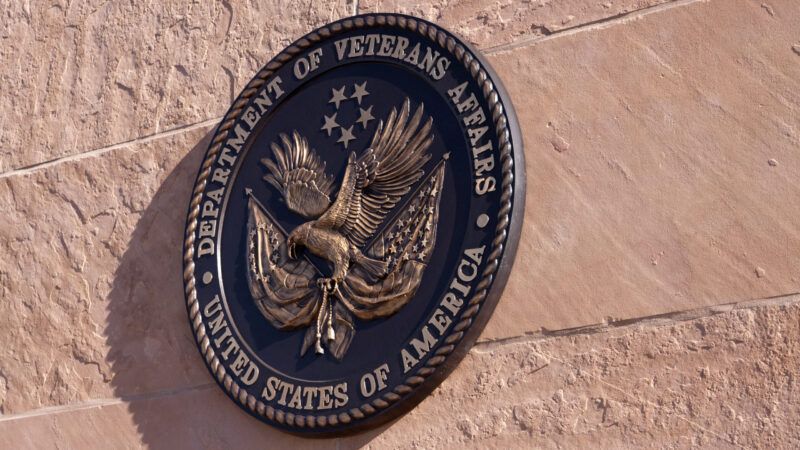The V.A. Bought 10,000 iPhones for Veterans. 8,544 of Them Were Never Used.
The department lost nearly $2.4 million on data plans for iPhones and iPads that sat in storage.

The U.S. Department of Veterans Affairs (V.A.) lost nearly $2.4 million on data plans for iPhones and iPads that were supposed to help homeless veterans connect to telehealth services. Ultimately, 85 percent of the iPhones meant to be loaned went unused and remained in storage one year after their purchase, according to a new inspector general's report.
Under the Coronavirus Aid, Relief, and Economic Security (CARES) Act, the V.A. received $14.4 billion to be used on health services for homeless veterans and those at risk of becoming homeless. A chunk of that money went to the department's Office of Connected Care, which has loaned communications devices to veterans since 2014 so they can access telehealth services.
Connected Care launched a new program in the summer of 2020 that loans iPhones and iPads, equipped with prepaid 12-month data plans, to veterans. Officials spent $63 million on 80,930 iPads and $8.1 million on 10,000 iPhones during FY 2020 and the first two quarters of FY 2021.
"Connected Care's procedures led to excessive wasted data plans while the iPads and iPhones remained in storage," according to the report. In July 2021, one year after their initial purchase, "8,544 iPhones (85 percent) remained in storage." In addition to the money lost on buying phones that went unused, the V.A. also wasted cash on unused data plans. Because contractors activated data plans before shipment to the V.A. and not upon delivery to veterans, the agency lost roughly $1.8 million on data for iPhones and $571,000 on data for iPads as the devices sat in storage.
"This occurred because Connected Care officials were not able to identify the quantity needed for the targeted veteran population because of uncertainties associated with COVID-19 and the lack of data on the quantity needed for a new initiative," concluded the report. Ultimately, demand for iPhones "was much lower than anticipated"—but the V.A. failed to predict this prior to its purchases and did not take sufficient corrective actions along the way. Excess devices ended up getting shuffled to a separate office within the department for distribution to homeless veterans, but not before losing the V.A. millions of dollars simply by sitting on shelves.
The V.A. has repeatedly come under fire for financial mismanagement and ill-directed spending. In 2019, the U.S. Office of Special Counsel reported the department had spent $223 million on "unnecessary transportation" for veterans, all while failing "to reimburse some community healthcare providers, resulting in veterans losing care and being referred to collection agencies." In 2015, The Washington Post found that the V.A. had been "spending at least $6 billion a year in violation of federal contracting rules to pay for medical care and supplies, wasting taxpayer money and putting veterans at risk."
Despite major concerns about the department's ability to handle money responsibly, the V.A. is requesting $301.4 billion for its FY 2023 budget—a 13.3 percent increase from 2022. The department may have agreed with the inspector general's recommendations to avoid further waste on excess devices and data plans, but it's nonetheless determined to gobble up more funding.


Show Comments (38)